The Da Vinci Code Read online
Page 2
The room was spartan – hardwood floors, a pine dresser, a canvas mat in the corner that served as his bed. He was a visitor here this week, and yet for many years he had been blessed with a similar sanctuary in New York City.
The Lord has provided me shelter and purpose in my life.
Tonight, at last, Silas felt he had begun to repay his debt. Hurrying to the dresser, he found the cell phone hidden in his bottom drawer and placed a call.
«Yes?» a male voice answered. «Teacher, I have returned.» «Speak,» the voice commanded, sounding pleased to hear from him.
«All four are gone. The three sénéchaux…and the Grand Master himself.»
There was a momentary pause, as if for prayer. «Then I assume you have the information?» «All four concurred. Independently.» «And you believed them?»
«Their agreement was too great for coincidence.»
An excited breath. «Excellent. I had feared the brotherhood’s reputation for secrecy might prevail.» «The prospect of death is strong motivation.» «So, my pupil, tell me what I must know.»
Silas knew the information he had gleaned from his victims would come as a shock. «Teacher, all four confirmed the existence of the clef de voûte…the legendary keystone.»
He heard a quick intake of breath over the phone and could feel the Teacher’s excitement. «The keystone.Exactly as we suspected.»
According to lore, the brotherhood had created a map of stone – a clef de voûte…or keystone – an engraved tablet that revealed the final resting place of the brotherhood’s greatest secret… information so powerful that its protection was the reason for the brotherhood’s very existence. «When we possess the keystone,» the Teacher said,» we will be only one step away.» «We are closer than you think. The keystone is here in Paris.» «Paris? Incredible. It is almost too easy.» Silas relayed the earlier events of the evening… how all four of his victims, moments before death, had desperately tried to buy back their godless lives by telling their secret. Each had told Silas the exact same thing – that the keystone was ingeniously hidden at a precise location inside one of Paris’s ancient churches – the Eglise de Saint-Sulpice.
«Inside a house of the Lord,» the Teacher exclaimed. «How they mock us!» «As they have for centuries.» The Teacher fell silent, as if letting the triumph of this moment settle over him. Finally, he spoke. «You have done a great service to God. We have waited centuries for this. You must retrieve the stone for me. Immediately. Tonight. You understand the stakes.»
Silas knew the stakes were incalculable, and yet what the Teacher was now commanding seemed impossible. «But the church, it is a fortress. Especially at night. How will I enter?»
With the confident tone of a man of enormous influence, the Teacher explained what was to be done.
When Silas hung up the phone, his skin tingled with anticipation.
One hour , he told himself, grateful that the Teacher had given him time to carry out the necessary penance before entering a house of God. I must purge my soul of today’s sins.The sins committed today had been holy in purpose. Acts of war against the enemies of God had been committed for centuries. Forgiveness was assured.
Even so, Silas knew, absolution required sacrifice.
Pulling his shades, he stripped naked and knelt in the center of his room. Looking down, he examined the spiked cilice belt clamped around his thigh. All true followers of The Way wore this device – a leather strap, studded with sharp metal barbs that cut into the flesh as a perpetual reminder of Christ’s suffering. The pain caused by the device also helped counteract the desires of the flesh.
Although Silas already had worn his cilice today longer than the requisite two hours, he knew today was no ordinary day. Grasping the buckle, he cinched it one notch tighter, wincing as the barbs dug deeper into his flesh. Exhaling slowly, he savored the cleansing ritual of his pain.
Pain is good , Silas whispered, repeating the sacred mantra of Father Josemaría Escrivá – the Teacher of all Teachers. Although Escrivá had died in 1975, his wisdom lived on, his words still whispered by thousands of faithful servants around the globe as they knelt on the floor and performed the sacred practice known as» corporal mortification.»
Silas turned his attention now to a heavy knotted rope coiled neatly on the floor beside him. TheDiscipline. The knots were caked with dried blood. Eager for the purifying effects of his own agony, Silas said a quick prayer. Then, gripping one end of the rope, he closed his eyes and swung it hard over his shoulder, feeling the knots slap against his back. He whipped it over his shoulder again, slashing at his flesh. Again and again, he lashed.
Castigo corpus meum.
Finally, he felt the blood begin to flow.
CHAPTER 3
The crisp April air whipped through the open window of the Citroën ZX as it skimmed south past the Opera House and crossed Place Vendôme. In the passenger seat, Robert Langdon felt the city tear past him as he tried to clear his thoughts. His quick shower and shave had left him looking reasonably presentable but had done little to ease his anxiety. The frightening image of the curator’s body remained locked in his mind.
Jacques Saunière is dead.
Langdon could not help but feel a deep sense of loss at the curator’s death. Despite Saunière’s reputation for being reclusive, his recognition for dedication to the arts made him an easy man to revere. His books on the secret codes hidden in the paintings of Poussin and Teniers were some of Langdon’s favorite classroom texts. Tonight’s meeting had been one Langdon was very much looking forward to, and he was disappointed when the curator had not shown.
Again the image of the curator’s body flashed in his mind. Jacques Saunière did that to himself?Langdon turned and looked out the window, forcing the picture from his mind.
Outside, the city was just now winding down – street vendors wheeling carts of candied amandes, waiters carrying bags of garbage to the curb, a pair of late night lovers cuddling to stay warm in a breeze scented with jasmine blossom. The Citroën navigated the chaos with authority, its dissonant two-tone siren parting the traffic like a knife.
« Le capitaine was pleased to discover you were still in Paris tonight,» the agent said, speaking for the first time since they’d left the hotel. «A fortunate coincidence.»
Langdon was feeling anything but fortunate, and coincidence was a concept he did not entirely trust. As someone who had spent his life exploring the hidden interconnectivity of disparate emblems and ideologies, Langdon viewed the world as a web of profoundly intertwined histories and events. The connections may be invisible, he often preached to his symbology classes at Harvard, but they are always there, buried just beneath the surface.
«I assume,» Langdon said,» that the American University of Paris told you where I was staying?» The driver shook his head. «Interpol.» Interpol, Langdon thought. Of course.He had forgotten that the seemingly innocuous request of all European hotels to see a passport at check-in was more than a quaint formality – it was the law. On any given night, all across Europe, Interpol officials could pinpoint exactly who was sleeping where. Finding Langdon at the Ritz had probably taken all of five seconds.
As the Citroën accelerated southward across the city, the illuminated profile of the Eiffel Tower appeared, shooting skyward in the distance to the right. Seeing it, Langdon thought of Vittoria, recalling their playful promise a year ago that every six months they would meet again at a different romantic spot on the globe. The Eiffel Tower, Langdon suspected, would have made their list. Sadly, he last kissed Vittoria in a noisy airport in Rome more than a year ago.
«Did you mount her?» the agent asked, looking over.
Langdon glanced up, certain he had misunderstood. «I beg your pardon?»
«She is lovely, no?» The agent motioned through the windshield toward the Eiffel Tower. «Have you mounted her?»
Langdon rolled his eyes. «No, I haven’t climbed the tower.» «She is the symbol of France. I think she is perfect.»
Langdon nodded absently. Symbologists often remarked that France – a country renowned for machismo, womanizing, and diminutive insecure leaders like Napoleon and Pepin the Short – could not have chosen a more apt national emblem than a thousand-foot phallus.
When they reached the intersection at Rue de Rivoli, the traffic light was red, but the Citroen didn’t slow. The agent gunned the sedan across the junction and sped onto a wooded section of Rue Castiglione, which served as the northern entrance to the famed Tuileries Gardens – Paris’s own version of Central Park. Most tourists mistranslated Jardins des Tuileries as relating to the thousands of tulips that bloomed here, but Tuileries was actually a literal reference to something far less romantic. This park had once been an enormous, polluted excavation pit from which Parisian contractors mined clay to manufacture the city’s famous red roofing tiles – or tuiles.
As they entered the deserted park, the agent reached under the dash and turned off the blaring siren. Langdon exhaled, savoring the sudden quiet. Outside the car, the pale wash of halogen headlights skimmed over the crushed gravel parkway, the rugged whir of the tires intoning a hypnotic rhythm. Langdon had always considered the Tuileries to be sacred ground. These were the gardens in which Claude Monet had experimented with form and color, and literally inspired the birth of the Impressionist movement. Tonight, however, this place held a strange aura of foreboding.
The Citroën swerved left now, angling west down the park’s central boulevard. Curling around a circular pond, the driver cut across a desolate avenue out into a wide quadrangle beyond. Langdon could now see the end of the Tuileries Gardens, marked by a giant stone archway.
Arc du Carrousel.
Despite the orgiastic rituals once held at the Arc du Carrousel, art aficionados revered this place for another reason entirely. From the esplanade at the end of the Tuileries, four of the finest art museums in the world could be seen… one at each point of the compass.
Out the right-hand window, south across the Seine and Quai Voltaire, Langdon could see the dramatically lit facade of the old train station – now the esteemed Musée d’Orsay. Glancing left, he could make out the top of the ultramodern Pompidou Center, which housed the Museum of Modern Art. Behind him to the west, Langdon knew the ancient obelisk of Ramses rose above the trees, marking the Musée du Jeu de Paume.
But it was straight ahead, to the east, through the archway, that Langdon could now see the monolithic Renaissance palace that had become the most famous art museum in the world.
Musée du Louvre.
Langdon felt a familiar tinge of wonder as his eyes made a futile attempt to absorb the entire mass of the edifice. Across a staggeringly expansive plaza, the imposing facade of the Louvre rose like a citadel against the Paris sky. Shaped like an enormous horseshoe, the Louvre was the longest building in Europe, stretching farther than three Eiffel Towers laid end to end. Not even the million square feet of open plaza between the museum wings could challenge the majesty of the facade’s breadth. Langdon had once walked the Louvre’s entire perimeter, an astonishing three-mile journey.
Despite the estimated five days it would take a visitor to properly appreciate the 65, 300 pieces of art in this building, most tourists chose an abbreviated experience Langdon referred to as “Louvre Lite” – a full sprint through the museum to see the three most famous objects: the Mona Lisa, Venus de Milo, and Winged Victory.Art Buchwald had once boasted he’d seen all three masterpieces in five minutes and fifty-six seconds.
The driver pulled out a handheld walkie-talkie and spoke in rapid-fire French. «Monsieur Langdonest arrivé.Deux minutes.»
An indecipherable confirmation came crackling back.
The agent stowed the device, turning now to Langdon. «You will meet the capitaine at the main entrance.»
The driver ignored the signs prohibiting auto traffic on the plaza, revved the engine, and gunned the Citroën up over the curb. The Louvre’s main entrance was visible now, rising boldly in the distance, encircled by seven triangular pools from which spouted illuminated fountains.
La Pyramide.
The new entrance to the Paris Louvre had become almost as famous as the museum itself. The controversial, neomodern glass pyramid designed by Chinese-born American architect I. M. Peistill evoked scorn from traditionalists who felt it destroyed the dignity of the Renaissance courtyard. Goethe had described architecture as frozen music, and Pei’s critics described this pyramid as fingernails on a chalkboard. Progressive admirers, though, hailed Pei’s seventy-one-foot-tall transparent pyramid as a dazzling synergy of ancient structure and modern method – a symbolic link between the old and new – helping usher the Louvre into the next millennium.
«Do you like our pyramid?» the agent asked.
Langdon frowned. The French, it seemed, loved to ask Americans this. It was a loaded question, of course. Admitting you liked the pyramid made you a tasteless American, and expressing dislike was an insult to the French.
«Mitterrand was a bold man,» Langdon replied, splitting the difference. The late French president who had commissioned the pyramid was said to have suffered from a» Pharaoh complex.» Singlehandedly responsible for filling Paris with Egyptian obelisks, art, and artifacts.
François Mitterrand had an affinity for Egyptian culture that was so all-consuming that the French still referred to him as the Sphinx.
«What is the captain’s name?» Langdon asked, changing topics.
«Bezu Fache,» the driver said, approaching the pyramid’s main entrance. «We call him le Taureau.»
Langdon glanced over at him, wondering if every Frenchman had a mysterious animal epithet. «You call your captain the Bull?»
The man arched his eyebrows. «Your French is better than you admit, Monsieur Langdon.»
My French stinks , Langdon thought, but my zodiac iconography is pretty good.Taurus was always the bull. Astrology was a symbolic constant all over the world.
The agent pulled the car to a stop and pointed between two fountains to a large door in the side of the pyramid. «There is the entrance. Good luck, monsieur.» «You’re not coming?» «My orders are to leave you here. I have other business to attend to.» Langdon heaved a sigh and climbed out. It’s your circus. The agent revved his engine and sped off.
As Langdon stood alone and watched the departing taillights, he realized he could easily reconsider, exit the courtyard, grab a taxi, and head home to bed. Something told him it was probably a lousy idea.
As he moved toward the mist of the fountains, Langdon had the uneasy sense he was crossing an imaginary threshold into another world. The dreamlike quality of the evening was settling around him again. Twenty minutes ago he had been asleep in his hotel room. Now he was standing in front of a transparent pyramid built by the Sphinx, waiting for a policeman they called the Bull.
I’m trapped in a Salvador Dali painting, he thought.
Langdon strode to the main entrance – an enormous revolving door. The foyer beyond was dimly lit and deserted.
Do I knock?
Langdon wondered if any of Harvard’s revered Egyptologists had ever knocked on the front door of a pyramid and expected an answer. He raised his hand to bang on the glass, but out of the darkness below, a figure appeared, striding up the curving staircase. The man was stocky and dark, almost Neanderthal, dressed in a dark double-breasted suit that strained to cover his wide shoulders. He advanced with unmistakable authority on squat, powerful legs. He was speaking on his cell phone but finished the call as he arrived. He motioned for Langdon to enter.
«I am Bezu Fache,» he announced as Langdon pushed through the revolving door. «Captain of the Central Directorate Judicial Police.» His tone was fitting – a guttural rumble… like a gathering storm.
Langdon held out his hand to shake. «Robert Langdon.»
Fache’s enormous palm wrapped around Langdon’s with crushing force.
«I saw the photo,» Langdon said. «Your agent said Jacques Saunière himself did –»
/> «Mr. Langdon,» Fache’s ebony eyes locked on. «What you see in the photo is only the beginning of what Saunière did.»
CHAPTER 4
Captain Bezu Fache carried himself like an angry ox, with his wide shoulders thrown back and his chin tucked hard into his chest. His dark hair was slicked back with oil, accentuating an arrow-like widow’s peak that divided his jutting brow and preceded him like the prow of a battleship. As he advanced, his dark eyes seemed to scorch the earth before him, radiating a fiery clarity that forecast his reputation for unblinking severity in all matters.
Langdon followed the captain down the famous marble staircase into the sunken atrium beneath the glass pyramid. As they descended, they passed between two armed Judicial Police guards with machine guns. The message was clear: Nobody goes in or out tonight without the blessing of Captain Fache.
Descending below ground level, Langdon fought a rising trepidation. Fache’s presence was anything but welcoming, and the Louvre itself had an almost sepulchral aura at this hour. The staircase, like the aisle of a dark movie theater, was illuminated by subtle tread-lighting embedded in each step. Langdon could hear his own footsteps reverberating off the glass overhead. As he glanced up, he could see the faint illuminated wisps of mist from the fountains fading away outside the transparent roof.
«Do you approve?» Fache asked, nodding upward with his broad chin.
Langdon sighed, too tired to play games. «Yes, your pyramid is magnificent.» Fache grunted. «A scar on the face of Paris.» Strike one.Langdon sensed his host was a hard man to please. He wondered if Fache had any idea that this pyramid, at President Mitterrand’s explicit demand, had been constructed of exactly 666 panes of glass – a bizarre request that had always been a hot topic among conspiracy buffs who claimed 666 was the number of Satan.
Langdon decided not to bring it up.
As they dropped farther into the subterranean foyer, the yawning space slowly emerged from the shadows. Built fifty-seven feet beneath ground level, the Louvre’s newly constructed 70, 000-square-foot lobby spread out like an endless grotto. Constructed in warm ocher marble to be compatible with the honey-colored stone of the Louvre facade above, the subterranean hall was usually vibrant with sunlight and tourists. Tonight, however, the lobby was barren and dark, giving the entire space a cold and crypt-like atmosphere.
«And the museum’s regular security staff?» Langdon asked.
« En quarantaine , »Fache replied, sounding as if Langdon were questioning the integrity of Fache’s team. «Obviously, someone gained entry tonight who should not have. All Louvre night wardens are in the Sully Wing being questioned. My own agents have taken over museum security for the evening.»
Langdon nodded, moving quickly to keep pace with Fache.
«How well did you know Jacques Saunière?» the captain asked. «Actually, not at all. We’d never met.» Fache looked surprised. «Your first meeting was to be tonight?»
«Yes. We’d planned to meet at the American University reception following my lecture, but he never showed up.»
Fache scribbled some notes in a little book. As they walked, Langdon caught a glimpse of the Louvre’s lesser-known pyramid – La Pyramide Inversée – a huge inverted skylight that hung from the ceiling like a stalactite in an adjoining section of the entresol. Fache guided Langdon up a short set of stairs to the mouth of an arched tunnel, over which a sign read: DENON. The Denon Wing was the most famous of the Louvre’s three main sections.
«Who requested tonight’s meeting?» Fache asked suddenly. «You or he?»
The question seemed odd. «Mr. Saunière did,» Langdon replied as they entered the tunnel. «His secretary contacted me a few weeks ago via e-mail. She said the curator had heard I would be lecturing in Paris this month and wanted to discuss something with me while I was here.»
«Discuss what?»
«I don’t know. Art, I imagine. We share similar interests.»
Fache looked skeptical. «You have no idea what your meeting was about?»
Langdon did not. He’d been curious at the time but had not felt comfortable demanding specifics. The venerated Jacques Saunière had a renowned penchant for privacy and granted very few meetings; Langdon was grateful simply for the opportunity to meet him.
«Mr. Langdon, can you at least guess what our murder victim might have wanted to discuss with you on the night he was killed? It might be helpful.»
The pointedness of the question made Langdon uncomfortable. «I really can’t imagine. I didn’t ask. I felt honored to have been contacted at all. I’m an admirer of Mr. Saunière’s work. I use his texts often in my classes.»
Fache made note of that fact in his book.
The two men were now halfway up the Denon Wing’s entry tunnel, and Langdon could see the twin ascending escalators at the far end, both motionless.
«So you shared interests with him?» Fache asked.
«Yes. In fact, I’ve spent much of the last year writing the draft for a book that deals with Mr. Saunière’s primary area of expertise. I was looking forward to picking his brain.»
Fache glanced up. «Pardon?»
The idiom apparently didn’t translate. «I was looking forward to learning his thoughts on the topic.»
«I see. And what is the topic?»
Langdon hesitated, uncertain exactly how to put it. «Essentially, the manuscript is about the iconography of goddess worship – the concept of female sanctity and the art and symbols associated with it.»
Fache ran a meaty hand across his hair. «And Saunière was knowledgeable about this?» «Nobody more so.» «I see.»
Langdon sensed Fache did not see at all. Jacques Saunière was considered the premiere goddess iconographer on earth. Not only did Saunière have a personal passion for relics relating to fertility, goddess cults, Wicca, and the sacred

 Angels & Demons
Angels & Demons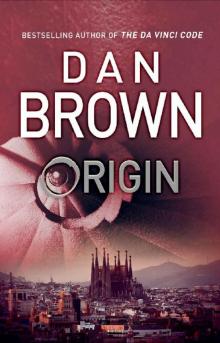 Origin
Origin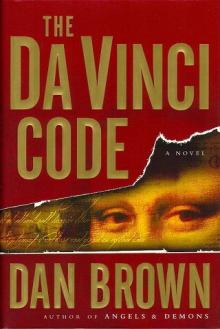 The Da Vinci Code
The Da Vinci Code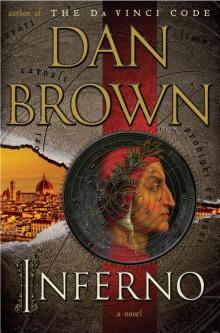 Inferno
Inferno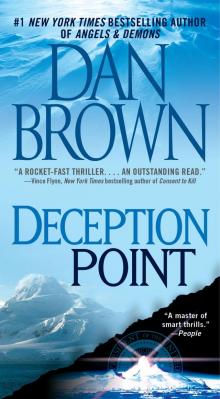 Deception Point
Deception Point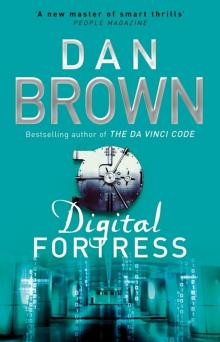 Digital Fortress
Digital Fortress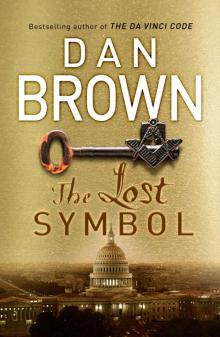 The Lost Symbol
The Lost Symbol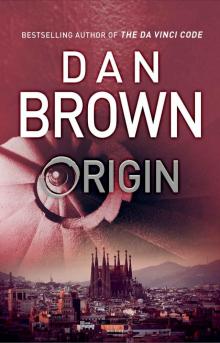 Origin: (Robert Langdon Book 5)
Origin: (Robert Langdon Book 5)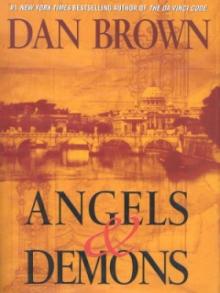 Angles & Demons
Angles & Demons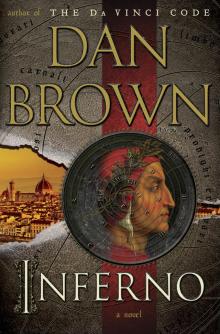 Inferno: A Novel
Inferno: A Novel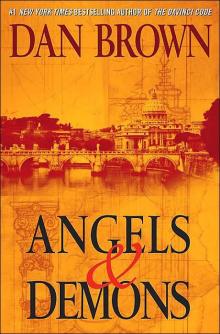 Angels & Demons rl-1
Angels & Demons rl-1 The Great Expectations School
The Great Expectations School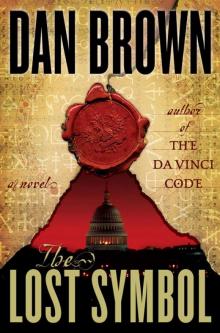 The Lost Symbol rl-3
The Lost Symbol rl-3 Angels and Demons
Angels and Demons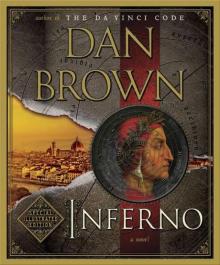 Inferno: Special Illustrated Edition: Featuring Robert Langdon
Inferno: Special Illustrated Edition: Featuring Robert Langdon